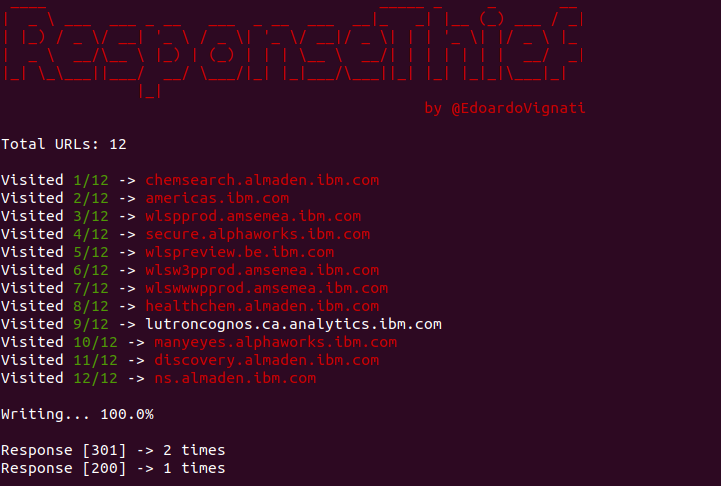ResponseThief visits URLs from a list and returns the http response codes.
___ _____ _ _ __
| _ \___ ____ __ ___ _ _ _____|_ _| |_ (_)___ / _|
| / -_(_-| '_ / _ | ' \(_-/ -_)| | | ' \| / -_| _|
|_|_\___/__| .__\___|_||_/__\___||_| |_||_|_\___|_|
|_|
by @EdoardoVignati
$ git clone https://github.com/EdoardoVignati/ResponseThief
$ python3 -m venv venv
$ source venv/bin/activate
$ pip3 install -r requirements.txt
$ ./response-thief.py url_sample.txt result.txtwhere url_sample.txt is a list of URLs and result.txt is a path to an empty file.
Launch it with:
$ ./response-thief.py ./url_sample.txt result.txt Example of input file:
www.github.com
github.com
foo.bar.gitlab.com
A list can be generated with Sublist3r
You can filter a specific http status code by adding:
--filter 404
The output file will contain only the filtered url.
The output is built in this format:
[200] www.github.com
[301] foo.gitlab.com
[...] ...
Verbosity (--stdout) has 3 different levels:
enabled(print everything)minimal(print important information)disable(do not print anything)
- Red URL: error retrieving URL
- White URL: ok, a response code has been registered
Timeout error: cannot retrieve the webpage within 5 secondsConnection error: cannot open or find the domainUnknown error: don't know what's happening :)

